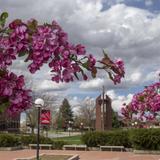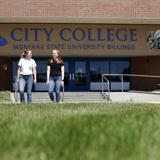- The mission of the College District is to create student success through educational leadership.
School Highlights
Northern Wyoming Community College District serves 4,559 students (30% of students are full-time).
The college's student:teacher ratio of 12:1 is higher than the state community college average of 11:1.
Minority enrollment is 17% of the student body (majority Hispanic), which is less than the state average of 27%.
Quick Stats (2025)
- Enrollment: 4,559 students
- In-state tuition: $2,892
- Out-state tuition: $6,876
- Student:teacher ratio: 12:1
- Minority enrollment: 17%
- Source: Integrated Postsecondary Education Data System (IPEDS)
School Overview
The teacher population of 382 teachers has stayed relatively flat over five years.
Northern Wyoming Community College District
(WY) Community College Avg.
Carnegie Classification
Associate's Colleges: Mixed Transfer/Career & Technical-High Nontraditional
Associate's Colleges: Mixed Transfer/Career & Technical-High Nontraditional
Institution Level
At least 2 but less than 4 years
At least 2 but less than 4 years
Institution Control
Public
Public
Total Faculty
382 staff
245 staff
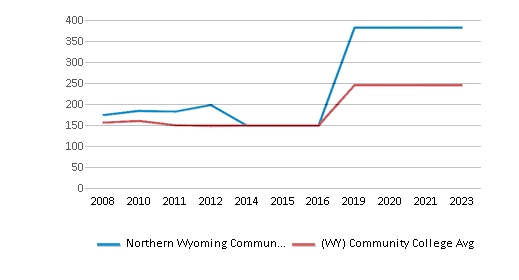
School Calendar
Student Body
The student population of Northern Wyoming Community College District has stayed relatively flat over five years.
The student:teacher ratio of 12:1 has increased from 10:1 over five years.
The Northern Wyoming Community College District diversity score of 0.30 is less than the state average of 0.45. The school's diversity has grown by 11% over five years.
Total Enrollment
4,559 students
2,377 students
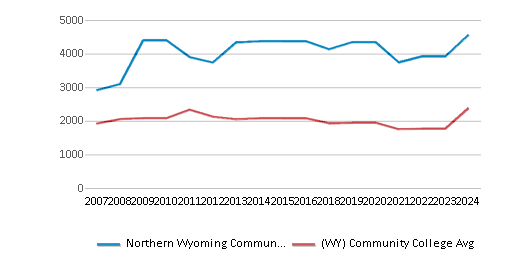
Student : Teacher Ratio
12:1
11:1
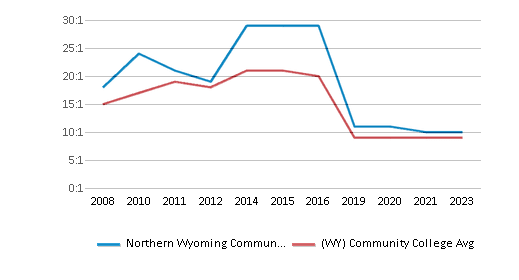
# Full-Time Students
1,368 students
899 students
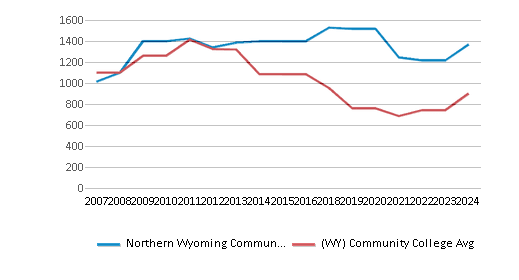
# Part-Time Students
3,191 students
2,308 students
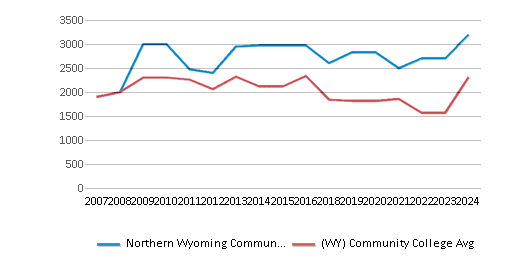
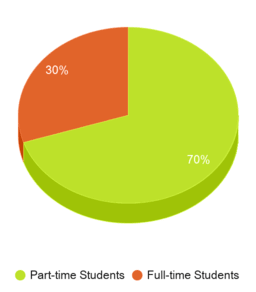
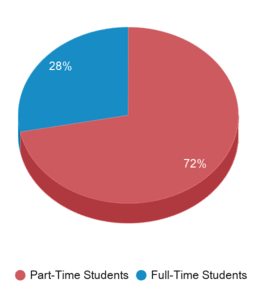
# Enrollment Undergraduate
455 students
237 students
# Full-Time Undergraduate Students
1,368 students
899 students
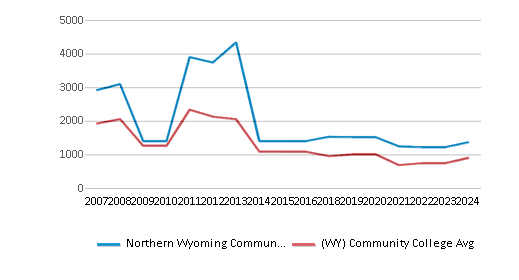
# Part-Time Undergraduate Students
3,191 students
2,308 students
Total Dormitory Capacity
738 students
620 students
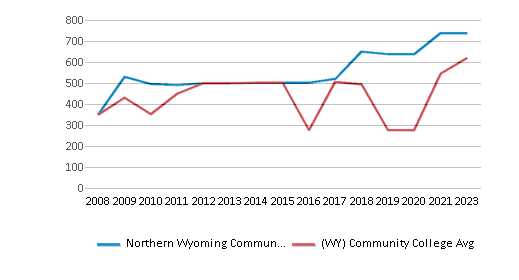
% American Indian/Alaskan
2%
2%
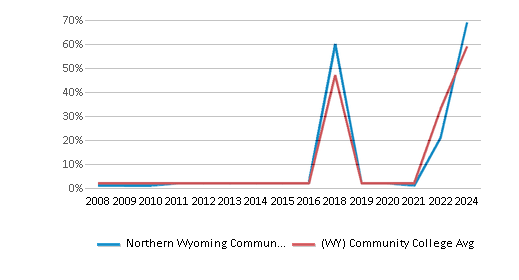
% Asian
1%
1%
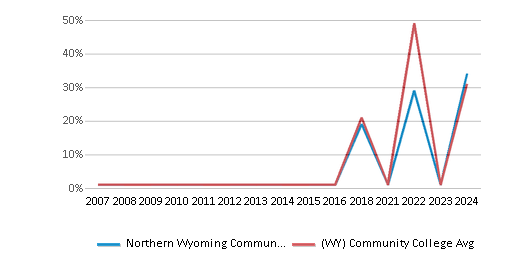
% Hispanic
9%
12%
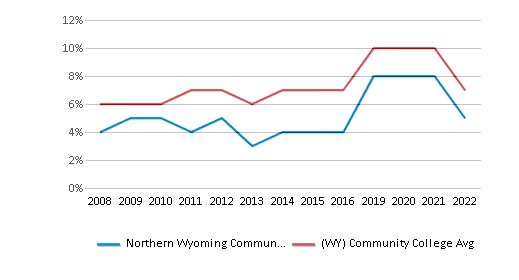
% Black
1%
1%
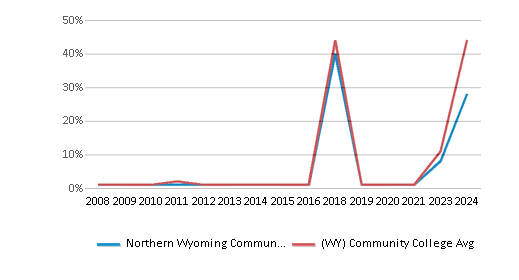
% White
83%
73%
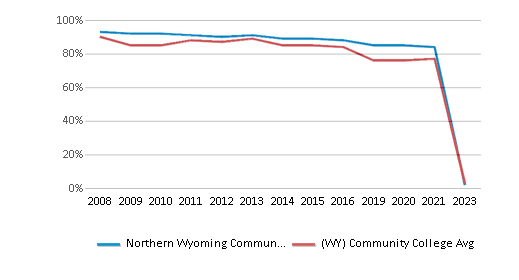
% Hawaiian
n/a
n/a
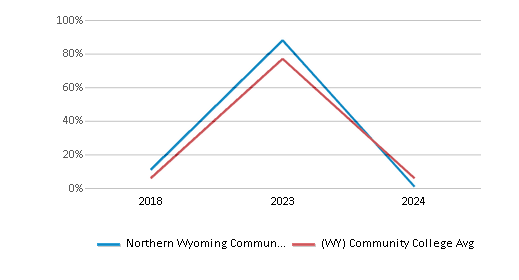
% Two or more races
3%
3%
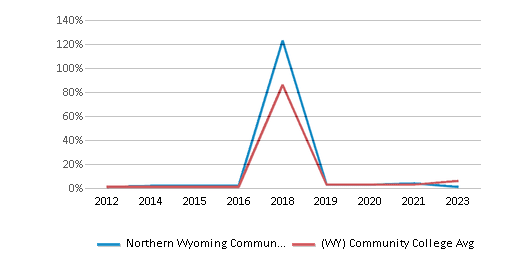
% Non Resident races
n/a
1%

% Unknown races
1%
7%
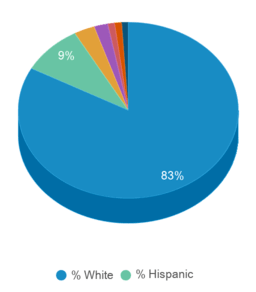
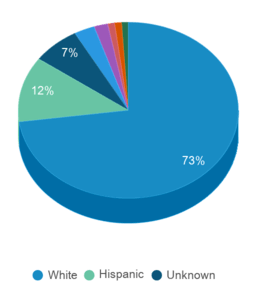
Diversity Score
0.30
0.45
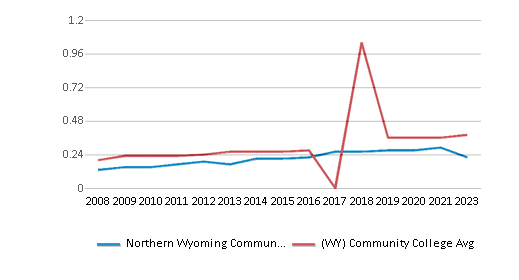
College Completion Rate (Students who graduate in less than 4 years)
0.3405%
0.8136%
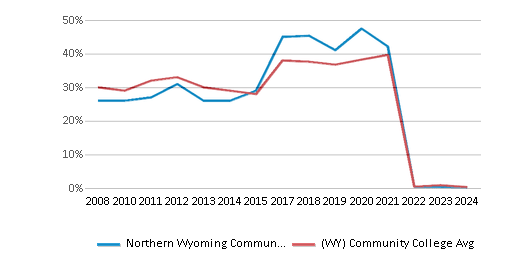
College Completion Rate (Students who graduate in 4 years or more than 4 years)
n/a
0.3377%
Average Graduate Earnings (10 Years)
$36,000
$34,500
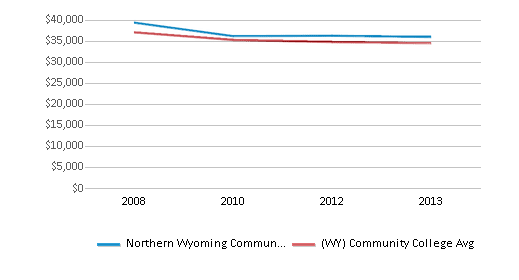
Tuition and Acceptance Rate
The public in-state tuition of $2,892 is more than the state average of $2,855. The in-state tuition has declined by 32% over four years.
The public out-state tuition of $6,876 is less than the state average of $6,991. The out-state tuition has declined by 32% over four years.
In-State Tuition Fees
$2,892
$2,855
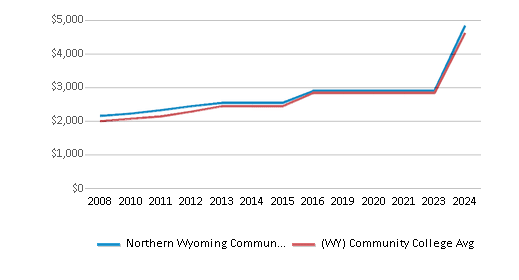
Out-State Tuition Fees
$6,876
$6,991
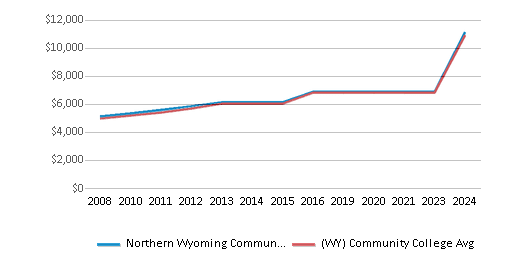
% Students Receiving Some Financial Aid
95%
93%
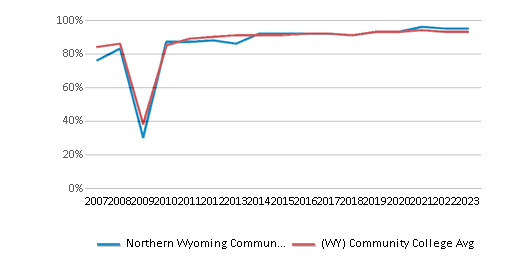
Median Debt for Graduates
$9,334
$9,323
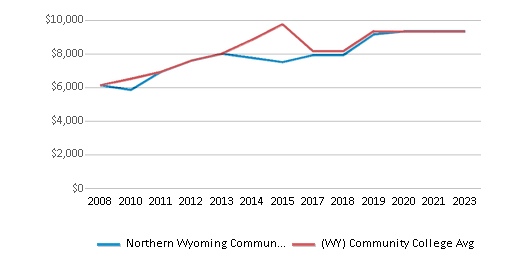
Median Debt for Dropouts
$4,736
$4,750
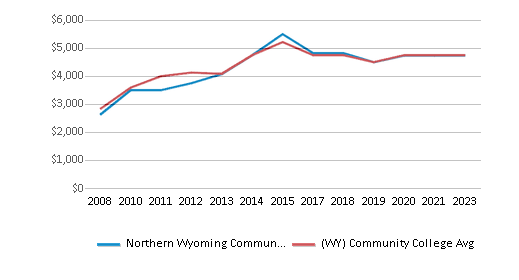
Source: 2024 (or latest year available) Integrated Postsecondary Education Data System (IPEDS)
School Notes
- Sheridan College is operated by the Northern Wyoming Community College District and includes the original campus in Sheridan, Wyoming, the Gillette Campus in Gillette, WY, and outreach programs in Sheridan, Johnson, and Campbell Counties. Sheridan College and Gillette Campus offer associate of arts, associate of science, and associate of applied science degrees, certificate programs, and program tracks that prepare students to transfer to a four-year college or university. In addition, students may elect to enroll in career training, professional development courses and/or vocational/technical programs. A number of master's and doctorate programs are available through distance learning agreements with four-year colleges and universities. Sheridan College consists of the main campus in Sheridan Wyoming, a commuter campus in Gillette Wyoming as well as outreach centers in Buffalo, Kaycee and Wright. Since the Fall of 2000, Sheridan College has offered classes via the Internet. The Sheridan Campus consists of 145+ acres featuring modern well-equipped facilities and attractive grounds. Over twenty campus buildings house academic, student services and residential operations. Sheridan College and the Gillette Campus are fully accredited by the Commission on Institutions of Higher Education of the North Central Association of Colleges and Schools. Nursing, Massage Therapy, and Dental programs carry additional professional accreditations.
Frequently Asked Questions
How much does Northern Wyoming Community College District cost?
Northern Wyoming Community College District's tuition is approximately $2,892 for In-State students and $6,876 for Out-State students.
What schools are Northern Wyoming Community College District often compared to?
Northern Wyoming Community College Districtis often viewed alongside schools like Northwest College by visitors of our site.
Recent Articles

Obtaining Your Bachelor's Degree at a Community College
Explore the evolving landscape of community colleges offering bachelor's degrees, addressing affordability, accessibility, and workforce needs.

A to Z of Community College Certificates and Courses
From business and healthcare to technology and skilled trades, the article showcases the breadth of options available to students seeking to enhance their knowledge, develop new skills, or pursue career advancement.

What is a Community College?
This comprehensive guide explains what a community college is, its history, and its role in higher education. It covers the types of programs offered, differences from four-year colleges, benefits of attending, and important considerations for prospective students, providing valuable insights for those exploring educational options.

